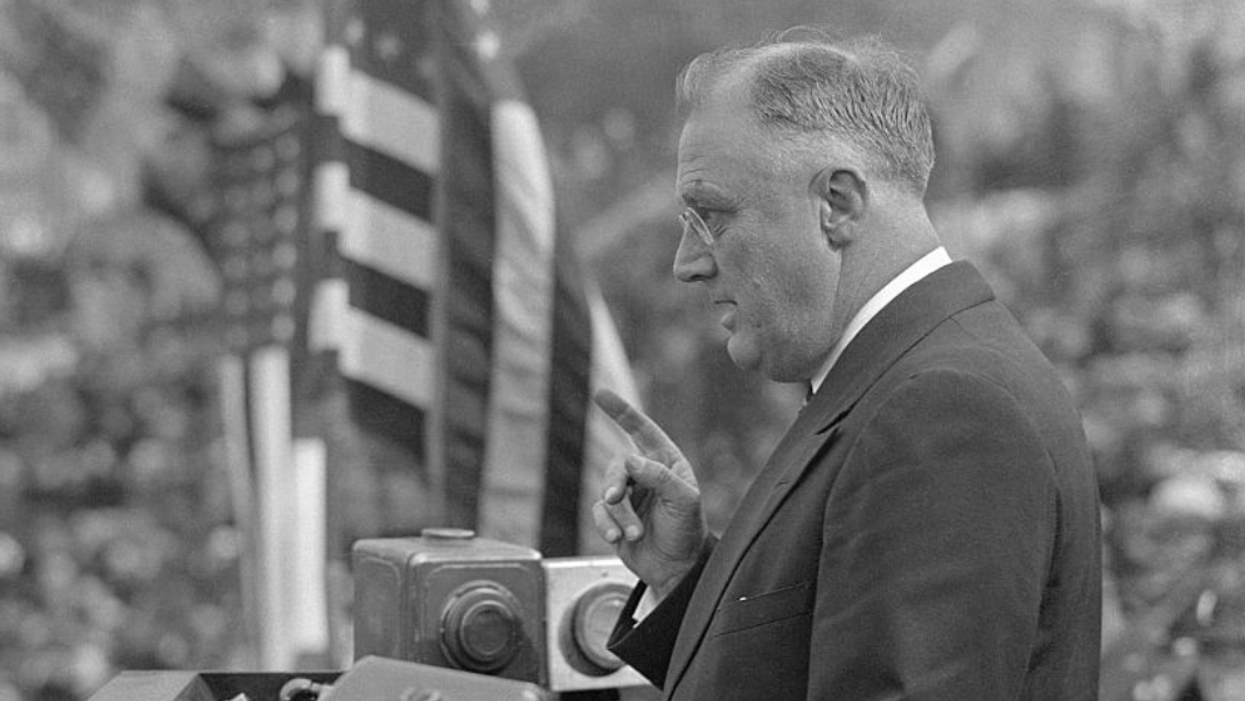Anderson edited "Leveraging: A Political, Economic and Societal Framework" (Springer, 2014), has taught at five universities and ran for the Democratic nomination for a Maryland congressional seat in 2016.
Even as the world has grown smaller due to the Internet and the World Wide Web, and even as climate change and the Russia-Ukraine war bring international issues to our iPhones and televisions every day, it is still the case that Americans have deep isolationist and idealistic streaks that are central to our national identity.
Our isolationism and idealism are in many ways two sides of our national pendulum: one side of us stays out of global affairs, our President Washington side, and one side of us tries to make the world safe for democracy, our President Wilson side.
The isolationist and idealist streaks are due to basic issues about space and time. With two oceans that separate us from Europe and Asia, we historically have not experienced the kind of pressure on our borders that countries in Europe and Asia, the other two power centers of the world have felt. Indeed, both World Wars witnessed countries in Europe and Asia, including France, Russia, and China, that were invaded. We left the space of the Old World and came to the New World to escape religious persecution, religious wars, and poverty in Europe. We created ourselves essentially outside of time far away from the Old World as a new kind of nation -- one dedicated to freedom, equality, national sovereignty, the separation of powers, and limited government.
In addition, the basic issue of time is instrumental to our idealism because we are still a very young country, certainly compared to England, Russia, China, Italy, and Egypt. We are only in our third century and not even halfway through it. There is still a youthful idealism about America.
The United States is of course also known for its pragmatism. The philosopher Morton White argued in his classic book Social Thought in America that our pragmatism and revolt against all forms of formalism covered a great range of fields, including philosophy, economics, history and law. But pragmatism, according to John Dewey, was wedded to idealist goals because we should be driven to keep experimenting and keep testing our ideas, our social science and our social practices in order to arrive at better, more effective, more humane solutions to our problems.
This union of pragmatism and idealism was evident in the leadership of FDR. American pragmatism at its best is chin up, thumbs up, eyes and ears toward a better tomorrow. According to the late noted Harvard historian David Donald, Lincoln also led in this tradition.
Our current role in Ukraine adopts a middle position which is a good example of a pragmatist move. Because we are supplying massive amounts of military resources but no troops, the U.S. position is pragmatist and not idealist. The Wilsonian idealist would be sending troops and supplying massive amounts of military resources. The upshot is that our historic struggle with isolationism and idealism needs to be revisited. We need to reset it.
Pragmatism sits between isolationism, which is also aligned with the realist worldview which sees only a power struggle between self-interested state actors, and idealism. We also need to steer clear of the kind of polarization that has infected our domestic politics and ensure that our foreign policy and international relations overall is pragmatic in a strong and not a weak sense. Weak pragmatism says do what works or do what makes money or do what helps you achieve your ends regardless of the means. The strong pragmatist has clear moral ideals, but they cannot be defended in any absolutist way.
Wilsonian idealism, which follows core principles of the philosopher Immanuel Kant, tries to promote the same democratic values in all countries. The strong pragmatist realizes that there is no place for absolutism in global politics because there is no set of moral truths that apply to all peoples in all times or any absolutist standpoint from which to defend them. In real life and real politics there must be compromises, beliefs need to be revised when new evidence appears, and new policies must be devised to promote democratic values of freedom, equality, and stability.
The strong pragmatist approach is needed in our foreign policy as much as our domestic policy. It despises intolerance, respects uncertainty, and pursues bipartisanship. It avoids both isolationism and idealism and also closes the gap between academic theorizing and real life politics since there is no abstract moral point of view that rises above particular situations.
Pragmatism provides the way forward.




















Trump & Hegseth gave Mark Kelly a huge 2028 gift